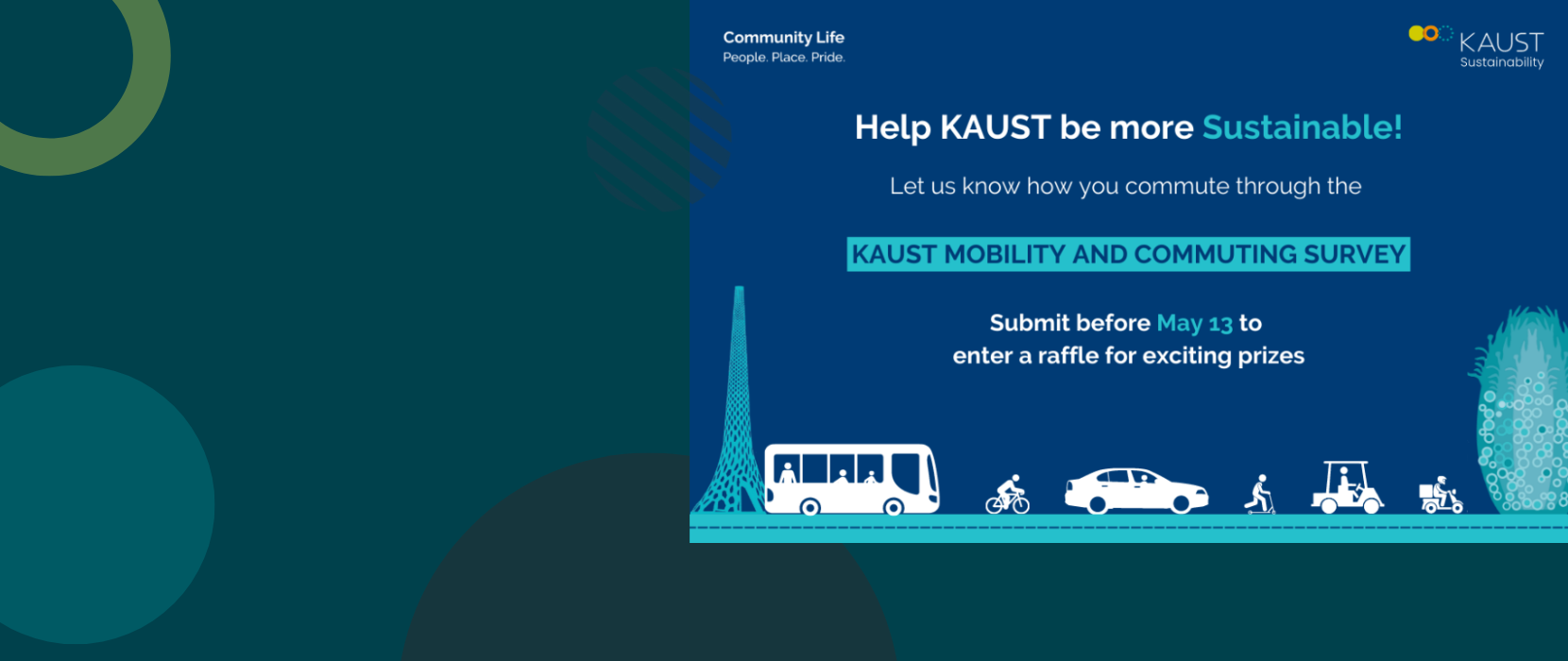KAUST recently conducted a Mobility and Commuting Survey to better understand how members of the community travel to and around campus. This initiative, led by Community Life and the Office of Sustainability in collaboration with students from the “CE-305 Life Cycle Sustainability Assessment” course, aimed to collect data on commuting habits and generate a report on the mobility infrastructure of KAUST. Such information is vital to inform an upcoming KAUST Climate Action Plan, ensuring relevant data is measured, and that sustainable commuting targets are set and monitored.
The survey received an overwhelming response, with over 1,300 participants sharing insights into their daily travel patterns. Respondents represented a diverse cross-section of the KAUST community, including staff, students, research park tenants, TKS staff and students, dependents, and non-residents. Additionally, the survey gathered more than 420 comments and suggestions, reflecting a shared interest in improving mobility and embracing more sustainable commuting options.
The feedback gathered from the survey can serve multiple purposes. First, it can guide the development of eco-friendly commuting initiatives, such as improved walking and cycling paths, potential carpooling programs and improved shuttle services. It might also help identify gaps in the existing system and prioritize investments in sustainable transportation solutions. Importantly, the data collected will also contribute to the calculations of KAUST’s carbon footprint, enabling the university to accurately measure the environmental impact of staff commuting.
The initiative is closely aligned with Sustainable Development Goal 11: Sustainable Cities and Communities, which emphasizes the importance of inclusive, safe, resilient, and sustainable urban environments. By addressing commuting patterns to promote sustainable transport, KAUST contributes to this global goal while fostering a healthier, greener campus environment. As KAUST takes the next steps to analyze the survey data and explore innovative solutions, the university reaffirms its commitment to sustainability and its role as a forward-thinking institution shaping a more sustainable future.




